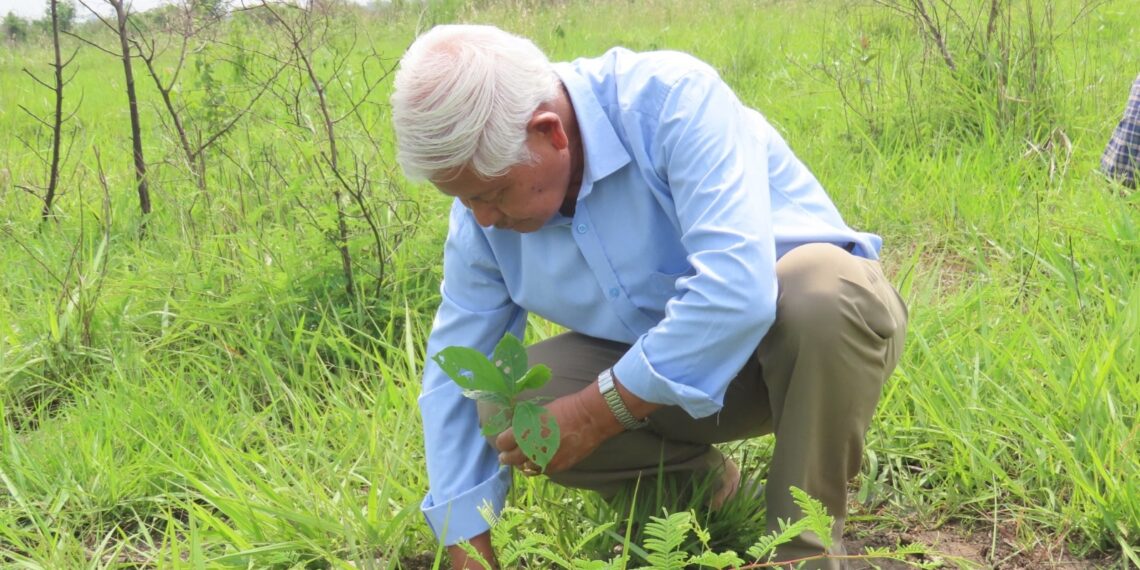Guwahati: Efforts to restore degraded forest land and mitigate human-elephant conflict (HEC) have gained fresh momentum in Assam’s Bhairabkunda Reserve Forest, with the third phase of a major plantation drive officially underway.
The initiative, led by biodiversity conservation NGO Aaranyak with support from the SBI Foundation, is being implemented in collaboration with the Dhansiri-Sikaridanga Joint Forest Management Committee (JFMC).
The project aims to rejuvenate 100 hectares of degraded land within the Dhansiri Forest Division in Udalguri district, using native plant species to enhance wildlife habitat and strengthen ecological corridors — particularly for wild elephants.
The 2024 plantation season began on May 14, with active participation from forest officials, local community members, representatives from FXB India Suraksha, and the Bhairabkunda Development Committee.
On the first day alone, 510 saplings representing 11 native species were planted.
“This year, we plan to plant one lakh saplings during the summer season,” said Rabiya Daimari, a representative from Aaranyak.
The species selected for the plantation include locally significant varieties such as Outenga, Bel, Kola Siris, Gamari, Amla, Jamun, Xilikha, and Bhelkor, among others.
The initiative is part of Aaranyak’s long-term strategy, launched two years ago, to improve elephant habitats in the region and foster peaceful coexistence between humans and elephants.
The targeted area, which features a mosaic of grasslands and woodlands, includes diverse soil types — from sandy and rocky stretches to swampy zones — making it ideal for ecological restoration.
Dr. Bibhuti Prasad Lahkar, senior conservation scientist at Aaranyak, emphasised that restoring natural habitats is a sustainable approach to reducing human-elephant conflict.
“Our goal is to secure migratory routes for elephants, rehabilitate degraded landscapes, and protect regional watersheds,” he said.
HEC remains one of the most pressing conservation challenges in Assam and across elephant habitats in India.
ALSO READ: Conrad inaugurates Hubert Rosario Road in Meghalaya’s West Jaintia Hills
The wide-ranging nature of Asian elephants often brings them into contact with human settlements, leading to crop destruction, property damage, human injuries, and occasional fatalities — all of which fuel retaliatory killings and undermine conservation efforts.
Dr. Alolika Sinha, a senior conservation biologist at Aaranyak, stressed the importance of collaborative action.
“Human-elephant conflict is a deeply complex issue that can only be addressed through integrated, multi-stakeholder strategies,” she noted.















